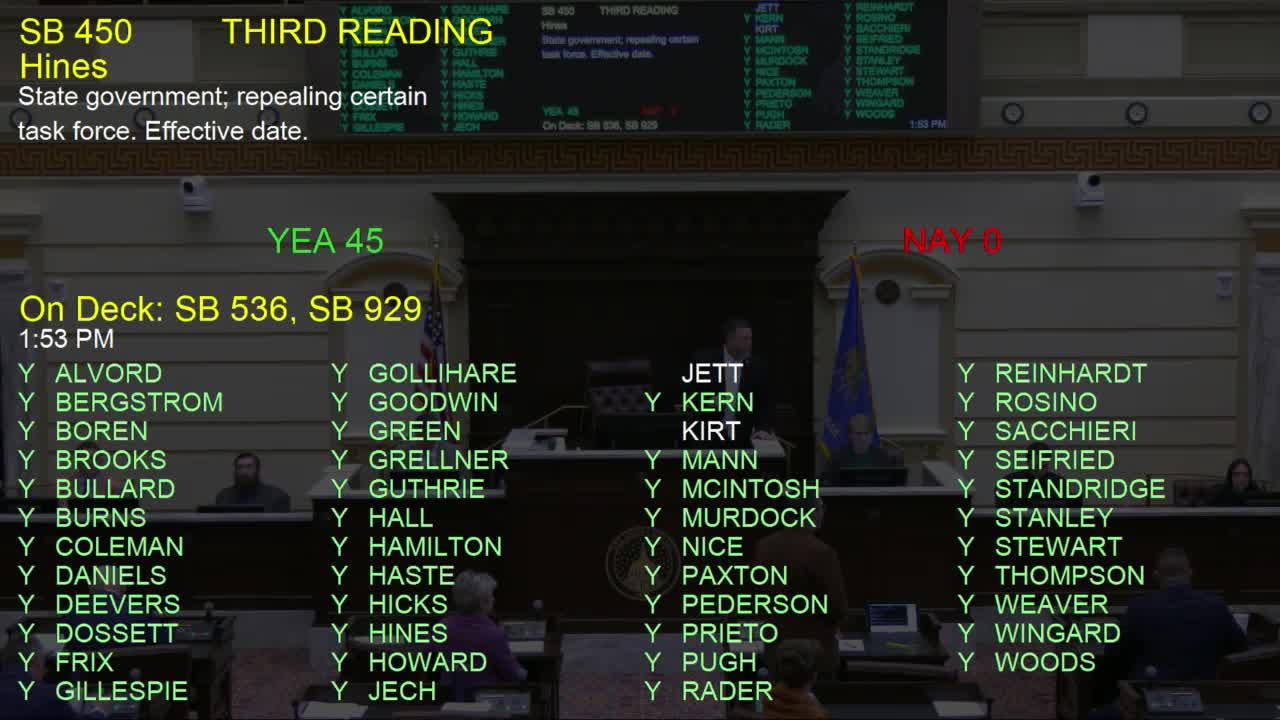Senate clears bill allowing county election secretaries to name a backup designee
Get AI-powered insights, summaries, and transcripts
Subscribe
Summary
The Oklahoma Senate passed Senate Bill 536 to allow the county election board secretary to file a named designee to act on the secretary’s behalf during extended absences; the author resisted amendments and the measure passed on a recorded vote.
The Oklahoma Senate on the floor advanced and then passed Senate Bill 536, a measure authorizing a county election board secretary to have a named designee who can perform the secretary’s duties if the secretary is unable to do so.
Senator Jessica Howard, explaining the bill, said, "Senate bill 5 36 allows the, secretary of the county election board to name a person that would fall in and be their designate to fulfill their duties if they are unable." Howard said the change arose from an incident in her home county when the appointed county secretary became seriously ill and the office lacked an available official to perform required duties for roughly three months.
The measure aims to provide a designated backup—"most likely would be the assistant secretary," Howard said—so that registrations, signatures and other official acts continue without interruption. "We had about a 3 month period in there where we did not have anybody that was able to act as secretary," she said, describing the operational problem the bill is intended to address.
Senator Mary Goodwin questioned language on page 4 and asked why the bill vests the state election board secretary with authority to provide written authorization rather than leaving that authority with the county secretary. Goodwin asked, "My concern is the question is on page 4, we're looking at line 7." Goodwin suggested the county secretary might be better positioned to provide written authority when able.
Howard acknowledged the concern but said the bill is intended to provide a state-level backstop for situations in which the county secretary becomes unexpectedly incapacitated, as in her example when the county secretary was hospitalized and rapidly worsened. "I would imagine that, sometimes there's instances where the, actual county secretary does not know that she's going to be unvacant," Howard said. She told colleagues she was not willing to accept a floor amendment at that time because the bill had been on general order and amendments could have been filed earlier.
The Senate recorded 46 yes votes and 1 not voting on final passage; the presiding officer declared the bill passed.
The bill was advanced and placed on third reading and final passage the same day. No amendment was adopted on the floor; the author declined to set up a late amendment rather than delay the bill to another general order day.
Senate Bill 536 will now proceed to the House for consideration if not already returned there.
Notes: The transcript shows the author referring to the county secretary’s illness and the bill’s placement on general order; the final roll call was read aloud before the clerk announced the tally.
